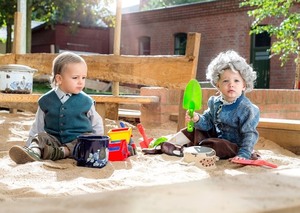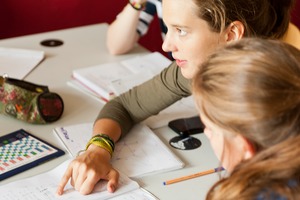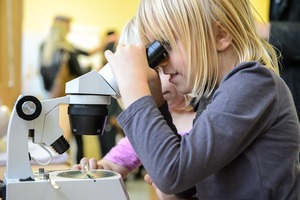Why this is important
The foundation for future educational success is laid early in life. That’s because children are observers, listeners and imitators. If we don’t answer their questions, they will stop asking questions. If we don’t read to them on a regular basis, they will experience more difficulties learning to read themselves.
In Germany, one in four children are still at risk of slipping into poverty. This has a negative impact on their opportunities to act and develop. That’s why providing support early on is so important, especially for boys and girls from disadvantaged families. If we succeed in providing individualised support to all children, opportunities will arise even for those who otherwise lack opportunities in life. And that is something that will benefit society as a whole.
The ‘Promoting Local Quality’ programme promotes quality development in childcare and early education in places all over Germany to give all children the chance to fully achieve their potential regardless of their background, their place of residence or their parents’ income. It is in the early years, after all, that important foundations for children’s future development, their educational success and their participation in society are being laid. That’s why improving quality in local day care centres, nurseries, play groups and pre-schools is as important as providing a sufficient number of childcare places.
Dyslexic Anna, Toni in his wheelchair, Sophie the maths genius, creative Ahmed and Luke who cannot concentrate for more than a few minutes – they all attend the same school and share the same classroom. Inclusion means that all children find the learning path that is best suited for their individual needs. The ‘One Classroom for All’ programme is designed to help selected schools become inclusive educational institutions. They receive support in the form of counselling, observational classroom visits by a practice coach, professional development and training, opportunities to share knowledge and experiences at networking meetings, and public relations activities.
What is the weight of air? How do earthworms move forward? In this programme, sponsored by Boeing, primary school children explore their everyday questions, acquiring knowledge about nature and the world as young researchers.



